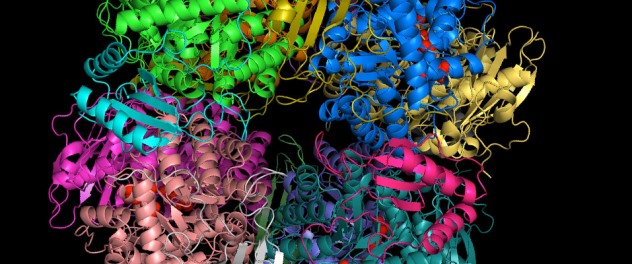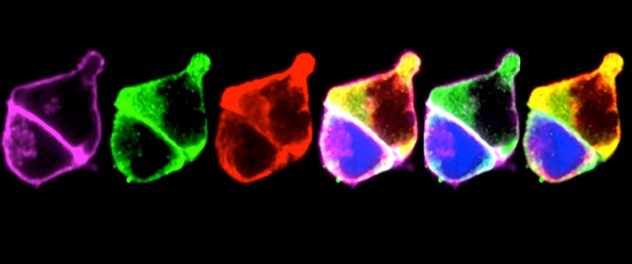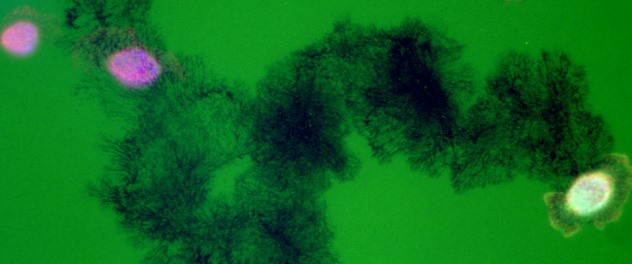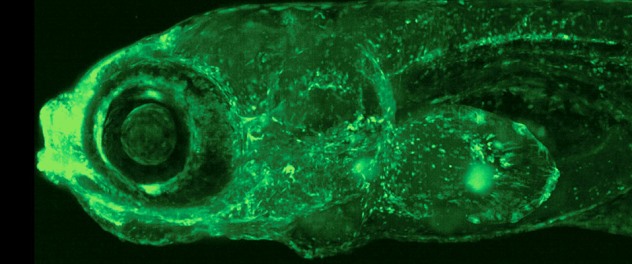-

Understanding molecular structure and function
Studying health and disease from molecular and cellular perspectives leads to insights for disease therapy and prevention.
-

Dissecting and integrating cellular processes
Studying health and disease from molecular and cellular perspectives leads to insights for disease therapy and prevention.
-

Training next-generation scientists
Studying health and disease from molecular and cellular perspectives leads to insights for disease therapy and prevention.
-

Applying powerful genetic systems to model human biology
Studying health and disease from molecular and cellular perspectives leads to insights for disease therapy and prevention.
Overview
The mission of Mayo Clinic's Department of Biochemistry and Molecular Biology is to discover, pioneer and share knowledge about the molecular and biochemical mechanisms driving health and disease. The department makes significant contributions to Mayo Clinic's mission through its nationally and internationally recognized biomedical research, as well as the training of students, postdoctoral fellows and clinicians. The Department of Biochemistry and Molecular Biology is committed to fostering an equitable and safe community that appreciates diverse perspectives and thrives as a result.
The Department of Biochemistry and Molecular Biology is Mayo's largest discovery science department. Faculty members have expertise in many areas including aging, cancer biology and metastasis, cell biology, cardiovascular and pulmonary diseases, DNA structure and repair, genetics and genomics, GI and liver disease, lung diseases, musculoskeletal conditions, polycystic kidney disease, structural biology, tissue development and regeneration, and virology. Laboratories in the department use human cells and tissues, as well as animal model systems (including rodents, zebrafish, Drosophila, Caenorhabditis elegans and yeast) to unravel complicated biological questions and find answers to human disease.
In addition to conducting outstanding research, faculty members direct and maintain many of the Mayo Clinic institutional core facilities, providing state-of-the-art technology for all scientists and clinicians at Mayo Clinic in the areas of microscopy (EM, light sheet, multiphoton), nuclear magnetic resonance spectroscopy and imaging, proteomics and mass spectroscopy, genomics and molecular biology, and knockout mouse technology. These facilities form an essential part of the Mayo Clinic research base.
The department fosters the education of future leaders in biomedical sciences through the Mayo Clinic Graduate School of Biomedical Sciences. The Biochemistry and Molecular Biology track is organized into three subtracks: biochemistry and structural biology, cell biology and genetics, and cancer biology. The Regenerative Sciences track is focused on developmental biology and tissue regeneration. Department members contribute significantly to the core didactic graduate-level education of all Mayo Clinic Graduate School of Biomedical Sciences doctoral students in molecular cell biology, genome biology, genetics, biochemistry, mechanisms of disease and a series of advanced graduate tutorials that provide an important extension to the core curriculum.
Publications
Department for Biochemistry and Molecular Biology investigators are internationally recognized scientists whose work is published in leading scientific journals.
See a stream of recent pooled Department of Biochemistry and Molecular Biology faculty publications.
View individual faculty research biographies to see a list of publications.
Use the Mayo Clinic Publications Database to search specific topics or authors.